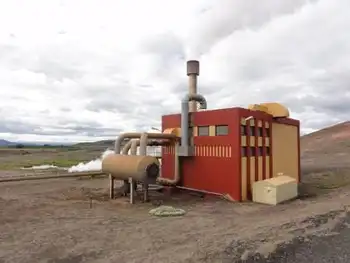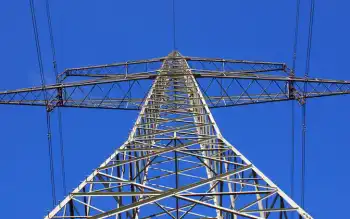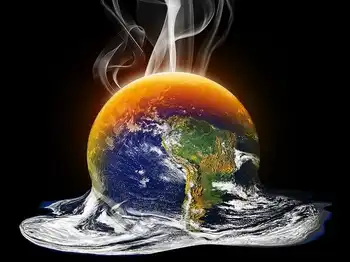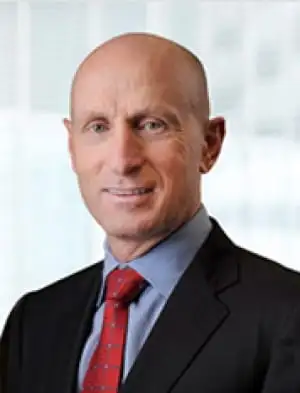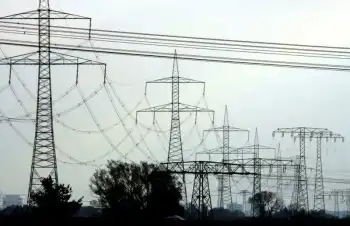Two endorsements of nuclear power, but details differ
By New York Times
CSA Z463 Electrical Maintenance -
Our customized live online or in‑person group training can be delivered to your staff at your location.

- Live Online
- 6 hours Instructor-led
- Group Training Available
Both men endorse nuclear energy, although to differing degrees, as part of their strategy to wean the United States from its dependence on foreign oil.
While Mr. McCain includes the building of nuclear reactors among his preferred options to obtain more energy, Mr. Obama assigns a higher priority to developing renewable sources like solar, wind and bio-fuels and increasing efficiency in the consumption of existing sources.
“I think that nuclear power should be in the mix when it comes to energy,” Mr. Obama said in June in Jacksonville, Fla., but added, “I don’t think it’s our optimal energy source, because we haven’t figured out how to store the waste safely or recycle the waste.”
Mr. McCain says on his campaign Web site that “nuclear power is a proven, zero-emission source of energy, and it is time we recommit” to expanding its use.
He also argues that it is “critical that the U.S. be able to build the components for these plants and reactors within our own country so that we are not dependent on foreign suppliers with long wait times.”
Because nuclear energy is virtually carbon neutral, some environmentalists who opposed its use now are more open to it.
Elgie Holstein, an adviser to Mr. Obama on energy issues, accused the McCain campaign of misrepresenting Mr. ObamaÂ’s position on nuclear power.
“Some specific proposals that Senator McCain has made are troubling,” Mr. Holstein said, because of the problems of storage and reprocessing, and the issue of non-proliferation of nuclear fuel.
“Senator Obama definitely understands that nuclear power plays a major role in our electricity mix and will continue to do so into the foreseeable future,” Mr. Holstein, a former Energy Department official said. “He doesn’t favor shutting down power plants and hasn’t come out against extending their licenses, so it is simply incorrect to say he is anti-nuclear-power.”
It is probably safe to say that Democrats as a group are less enthusiastic than Republicans about nuclear energy. The 57-page platform adopted at the DemocratsÂ’ convention in Denver in August does not mention nuclear power.
Mr. Obama is from Illinois, which has more nuclear reactors than any other state, and during the Democratic primary season drew fire from rivals for donations he had received from the company that operates those reactors. In his acceptance speech in Denver, Mr. Obama vowed that as president he would “find ways to safely harness nuclear power.”
Mr. McCain restated his support for nuclear power in the first two presidential debates, and criticized Mr. Obama. Tucker Bounds, a spokesman for the McCain campaign, did not respond to phone calls and e-mail messages over a one-month period requesting an interview with one of Mr. McCainÂ’s energy advisers to elaborate on Mr. McCainÂ’s stance.
On the campaign trail, Mr. McCain has repeatedly cited France as a model for the development of nuclear power in the United States. In France, 59 nuclear power plants generate nearly 80 percent of the countryÂ’s electricity, helping to reduce carbon emissions and producing a surplus that has made France one of the largest net electricity exporters in the world.
In France, the government controls both the construction of nuclear power plants and the generation and distribution of electricity.
“Putting aside the question of whether it is advisable to have an electricity system dominated by one mode of generation, it is a little odd for him to point to the heavily subsidized French case and say we should be emulating it,” Edwin Lyman, a nuclear expert at the Union of Concerned Scientists, said of Mr. McCain. “It would take a massive shift in government policy to proceed in the French direction, and it would be antithetical to the United States and how it operates, since it would be a quasi-socialist system.”
In campaign speeches, Mr. McCain also estimates that his program to build nuclear reactors would “provide 700,000 jobs for American workers.”
Some nuclear power experts offer more modest figures, noting that much of the heavy foundry work and other tasks would have to be done overseas, at least in the initial phase.
But Mr. McCain has said he wants such work to be done within the United States, even though he noted in July in Missouri that “our manufacturing base to even construct these plants is almost gone,” and added, “We will need to recover all the knowledge and skills that have been lost over three stagnant decades in a highly technical field.”
Patrick Moore, a founder of Greenpeace and the co-chairman of the Clean and Safe Energy Coalition, a pro-nuclear group, estimated that each reactor would cost up to $8 billion and would generate 3,000 to 4,000 jobs during the construction phase and up to 800 permanent jobs once in operation.
Asked to provide a ballpark figure on employment if all 45 reactors were to be built, Mr. Moore, responded, “225,000 good union jobs that you can support a family on.”
Trade groups like the Nuclear Energy Institute favor plans similar to Mr. McCainÂ’s proposal to build 45 nuclear reactors, but some energy experts say that would require billions of dollars in new subsidies and be an inefficient use of taxpayersÂ’ money, no matter how many jobs were generated.
Those experts seem to prefer Mr. ObamaÂ’s promise to invest $150 billion in clean-energy projects over 10 years, the bulk of which would probably be directed toward non-nuclear energy sources.
“The two big hurdles to the construction of nuclear plants in the United States are that they are not economically competitive and cannot be privately financed, so the real issue McCain should be addressing is how he proposes to pay for them,” said Tom Cochran, a physicist at the Natural Resources Defense Council, an environmental group. “You’re simply penalizing the programs and technology that include improvements in energy efficiency and can provide climate mitigation more quickly, cheaply and safely.”
Mr. McCain has sought to defuse concerns about the safety of reactors by noting his own service aboard the first nuclear powered aircraft carrier, the Enterprise. During the more than 50 years that the United States Navy has deployed nuclear vessels, “there has never been an accident,” he said recently in a campaign swing through Florida.
Strictly speaking, that statement is not correct. While it is true there has never been a known fatal accident involving nuclear material aboard a naval vessel, vessels have suffered blowback from radioactive waste or leaked radioactive coolant water in domestic waters and foreign ports, which generated complaints from governments in Japan and Singapore.
In large part because of safety concerns, the two candidates disagree on whether the federal government should build a nuclear storage facility at Yucca Mountain, Nev., about 90 miles north of Las Vegas.
Mr. McCain favors the proposal. Mr. Obama opposes it, arguing that a better short-term solution is to continue to store nuclear waste at the reactors that produce it “until we find a safe, long-term disposal solution that is based on sound science.”






